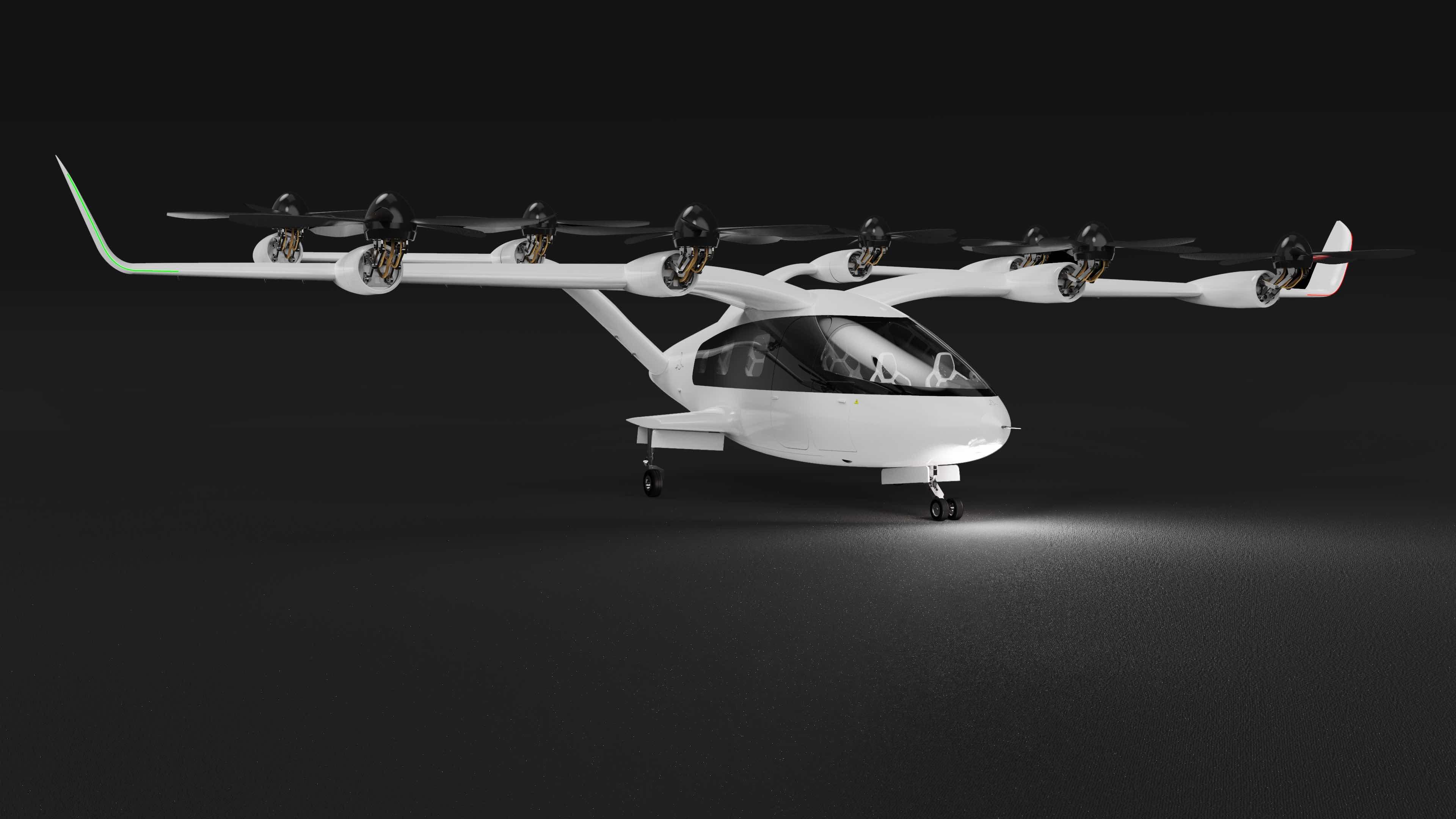
The LimoConnect can carry seven passengers and a pilot up to 150 mi. at a cruising speed of 200 mph.
In the increasingly crowded field of electric air taxi startups, Montreal-based Limosa is hopeful that a combination of spacious, flexible cabin configurations and the ability to take off and land from airport runways will help its LimoConnect aircraft stand out from the pack.
The LimoConnect is a piloted, seven-passenger tiltrotor electric-vertical-takeoff-and-landing (eVTOL) aircraft with distributed electric propulsion that is capable of both vertical and conventional takeoff and landing. The all-electric vehicle has a design range of 150 mi. (241.4 km) with a cruise speed of 200 mph and an endurance of 1 hr.
Speaking to the AAM Report, Limosa founder and CEO Dr. Hamid Hamidi highlights the LimoConnect’s cabin size and flexible configuration as a major advantage relative to other eVTOL startups.
“Not only can we carry seven passengers and a pilot, but we’re also doing a universal design that will allow us to pursue a number of different applications” including passenger transport, medevac, cargo and logistics, Hamidi says. “With our universal design for the primary structure of the aircraft, we can switch the configuration between different applications easily and very fast–as quick as a half hour–between passenger and medevac, for example.”
The second major competitive advantage that Hamidi highlights is the LimoConnect’s ability to take off and land conventionally using existing airport infrastructure, which he expects to be a major benefit given the lack of usable heliports and vertiports. “It’s going to take time to integrate new vertiports into the transportation systems that we already have. Instead of waiting for vertiports, there are many underused airports that we can use without needing any heliports or vertiports,” he says.
While the LimoConnect is being designed to fly all-electric, Hamidi says the startup is also considering adding a hybrid-electric capability for increased range and endurance. He added that his company is currently talking with [HH1] a major engine company about possibly acquiring a turbogenerator for hybrid applications.
“To start out, we are going to be all-electric, but we’re looking at different options,” Hamidi says. “If we go with the hybrid, we can get more range and increase the cabin size even further, easily scaling it up to 19 passengers.”
Limosa recently became the first Canadian eVTOL startup to start the type certification process with domestic regulator Transport Canada. As part of that effort, the company has partnered with Ontario-based consultancy BAC Aerospace to help it navigate the process, with a near-term goal of agreeing on the G-1 certification basis for the LimoConnect.
The company has built a 1/10th-scale model of the LimoConnect and is currently in the process of building out a 1/8th-scale model, Hamidi says. This is planned to be followed by the full-scale demonstrator, which the company expects to fly by mid-2024.
The airframe for the full-scale demonstrator, which is being built through a partnership with Dutch composites specialist Airborne, is expected to be ready by the end of 2023, according to Hamidi. The company has also partnered with Germany’s Autoflug on seats, and is in the process of exploring additional partnerships related to electric motors, battery packs and other systems and components, Hamidi adds.
The partnership with Airborne will also see the Dutch company dispatched to Montreal to help Limosa establish its automated manufacturing facilities for composite structures and parts. Through automated manufacturing processes, Hamidi believes the company can eventually build high volumes of aircraft with a production rate “somewhere between automotive and legacy aerospace industries.”
Limosa is currently considering its options for fundraising and has “serious discussions ongoing” with potential strategic partners, Hamidi says.
The LimoConnect is expected to achieve type certification from Transport Canada in 2028.
